Introduction to AI Tutoring: Revolutionizing Education

Introduction to AI Tutoring: Revolutionizing Education
Artificial IntelligenceArtificial Intelligence (AI) is rapidly transforming the educational landscape, offering unprecedented opportunities for personalized learning and adaptive teaching methods. In this article, we'll explore how AI tutoring is revolutionizing education and what it means for students, teachers, and the future of learning.
The Rise of AI in Education
Over the past decade, we've witnessed a significant increase in the adoption of AI technologies across various industries. Education is no exception, with AI-powered tools and platforms becoming increasingly prevalent in classrooms and online learning environments. AI tutoring, in particular, has emerged as a game-changing innovation that promises to address many of the challenges faced by traditional educational systems.
How AI Tutoring Works
AI tutoring systems leverage machine learning algorithms and natural language processing to create personalized learning experiences. These systems can:
- Assess a student's current knowledge and skills
- Identify areas for improvement
- Adapt the learning content and pace to suit individual needs
- Provide real-time feedback and support
By analyzing vast amounts of data on student performance and learning patterns, AI tutors can offer tailored guidance and interventions that are far more precise and timely than what human teachers alone can provide.
Benefits of AI Tutoring
1. Personalized Learning
One of the most significant advantages of AI tutoring is its ability to cater to each student's unique learning style, pace, and preferences. This level of personalization ensures that students receive the support they need to succeed, regardless of their starting point or learning challenges.
2. 24/7 Availability
Unlike human tutors, AI tutoring systems are available round the clock. This means students can access help and resources whenever they need them, promoting continuous learning and reducing the frustration of being stuck on a problem outside of school hours.
3. Scalability
AI tutors can simultaneously assist thousands of students, making quality education more accessible and affordable. This scalability is particularly crucial in addressing educational inequalities and reaching underserved communities.
4. Data-Driven Insights
AI tutoring systems generate valuable data on student performance and learning patterns. This information can help educators and policymakers make informed decisions about curriculum design, teaching strategies, and resource allocation.
Challenges and Considerations
While AI tutoring offers numerous benefits, it's essential to consider potential challenges and limitations:
- Privacy concerns: The collection and use of student data raise important privacy issues that need to be carefully addressed.
- Ethical considerations: As AI systems become more advanced, we must ensure they are designed and implemented ethically, without perpetuating biases or unfair advantages.
- Human interaction: While AI can provide excellent support, it's crucial to maintain a balance with human interaction and guidance in the learning process.
- Digital divide: Ensuring equal access to AI tutoring technologies across different socioeconomic groups remains a significant challenge.
The Future of AI Tutoring
As AI technologies continue to evolve, we can expect even more sophisticated and effective tutoring systems in the future. Some potential developments include:
- Emotional intelligence: AI tutors that can recognize and respond to students' emotional states, providing motivational support and adapting their approach accordingly.
- Virtual and augmented reality integration: Immersive learning experiences that combine AI tutoring with VR and AR technologies for enhanced engagement and understanding.
- Collaborative learning: AI-facilitated group learning experiences that promote peer-to-peer interaction and teamwork skills.
Conclusion
AI tutoring is undoubtedly revolutionizing education, offering personalized, scalable, and data-driven learning experiences. While challenges remain, the potential benefits of this technology are immense. As we continue to refine and improve AI tutoring systems, we move closer to a future where quality education is accessible to all, empowering learners to reach their full potential.
By embracing AI tutoring and addressing its challenges thoughtfully, we can create a more inclusive, effective, and engaging educational landscape for generations to come.
Table of Contents
- Introduction to AI Tutoring: Revolutionizing Education
- Introduction to AI Tutoring: Revolutionizing Education
- The Rise of AI in Education
- How AI Tutoring Works
- Benefits of AI Tutoring
- 1. Personalized Learning
- 2. 24/7 Availability
- 3. Scalability
- 4. Data-Driven Insights
- Challenges and Considerations
- The Future of AI Tutoring
- Conclusion
Related Posts
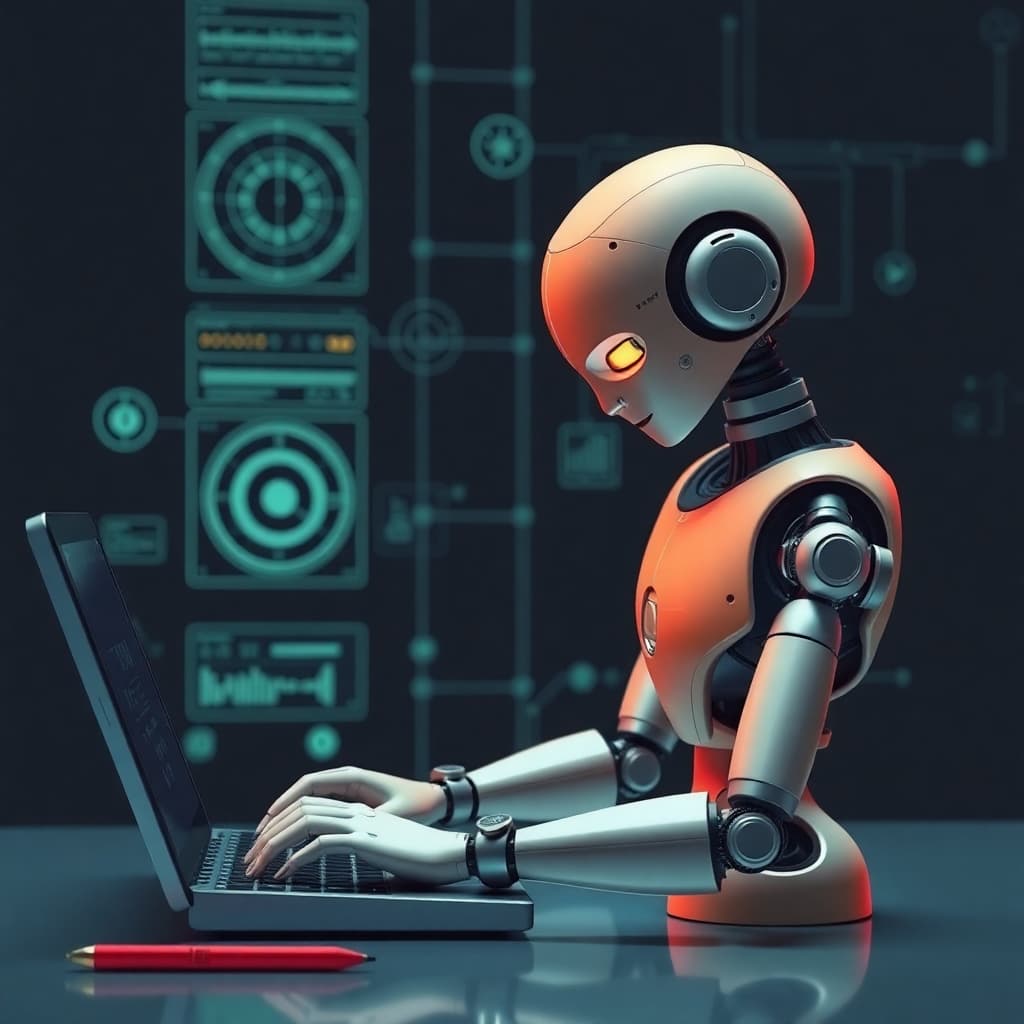
Discover how AI is transforming educational assessment, moving beyond traditional testing to provide more accurate, comprehensive, and fair evaluations of student learning.
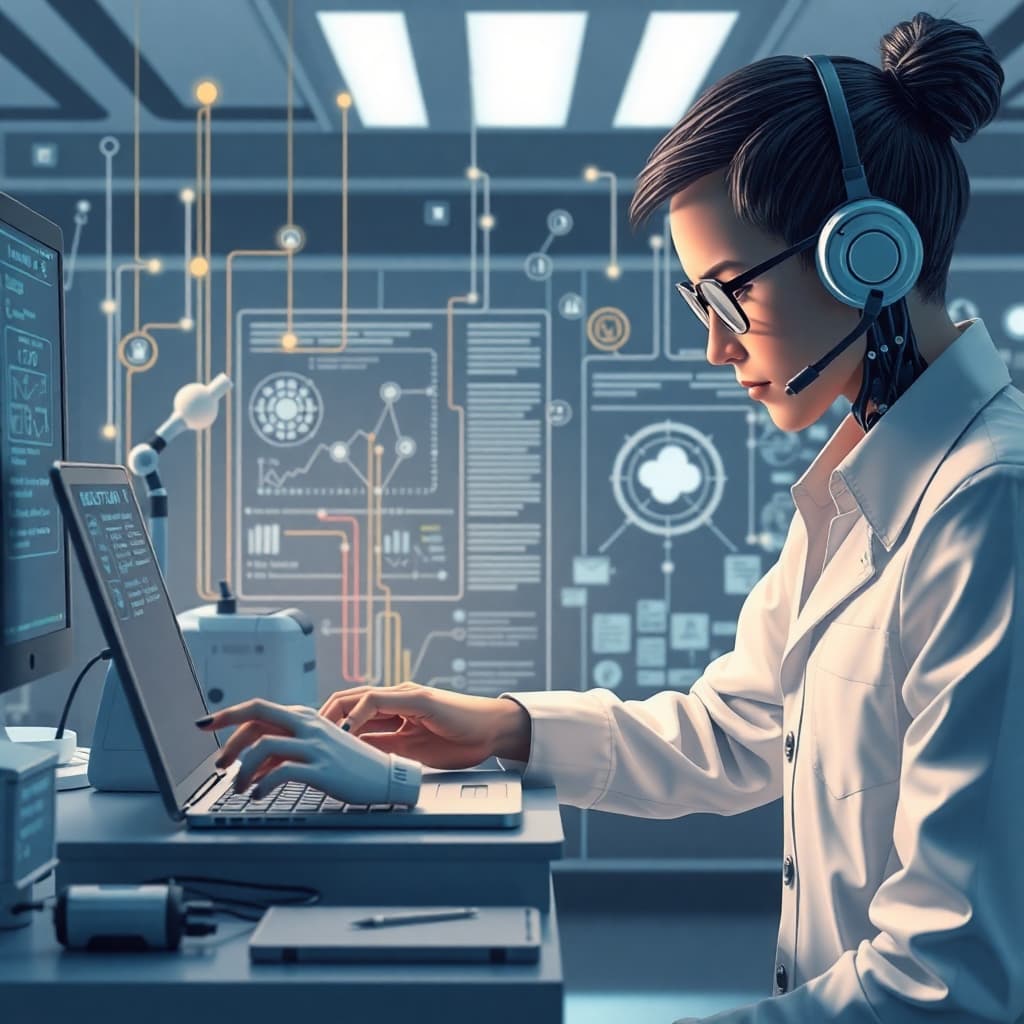
Explore how AI is enhancing collaborative learning experiences, preparing students for the future of work through innovative group projects and team-based problem-solving.
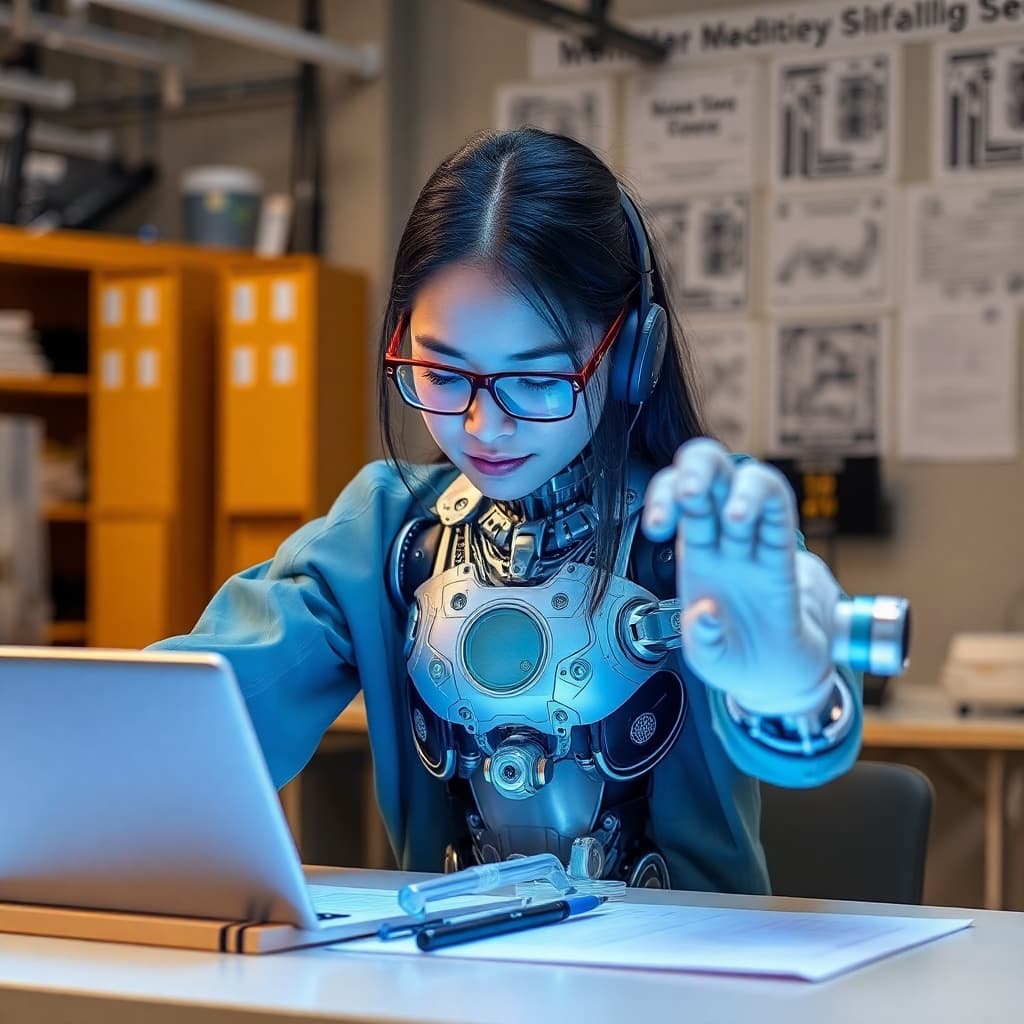
Explore how AI is being used to develop emotional intelligence in students, creating more empathetic, self-aware, and socially skilled learners for the 21st century.
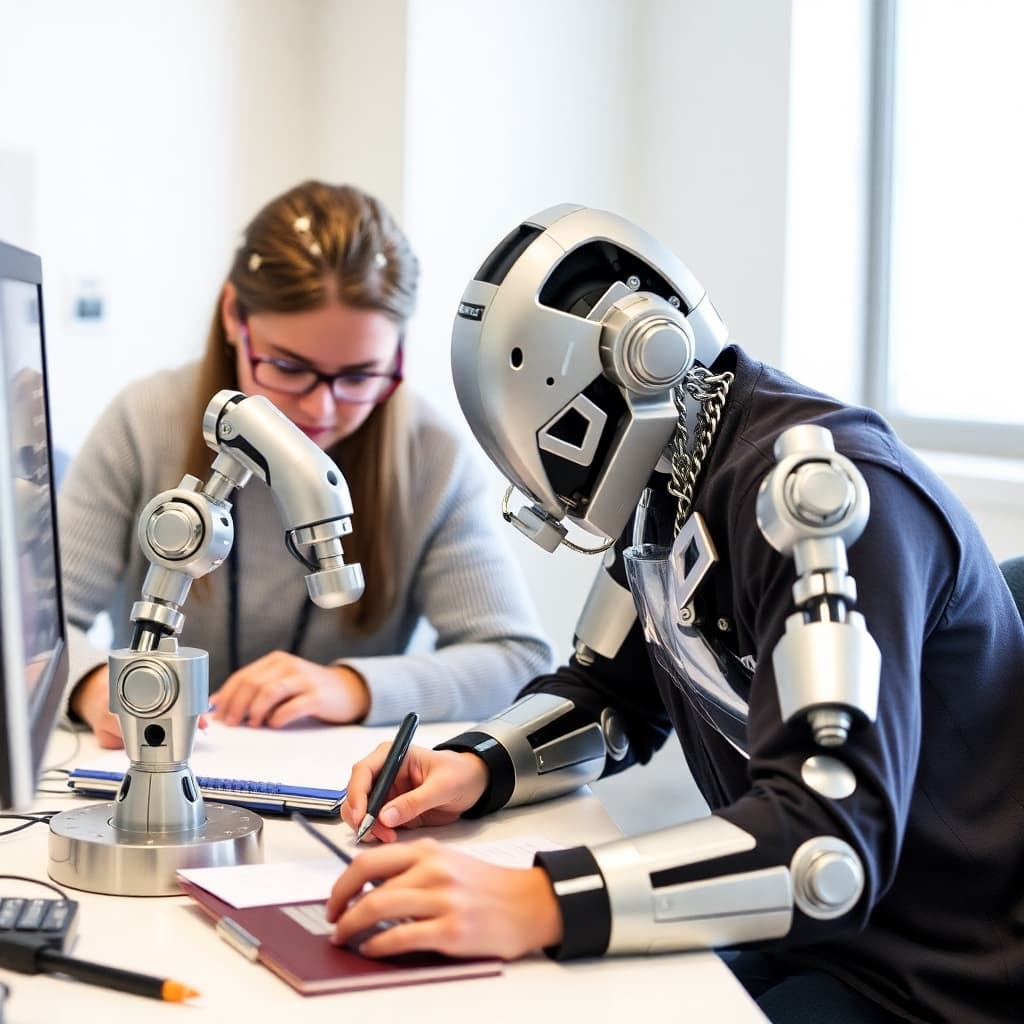
Discover how AI is breaking down barriers in education, providing personalized support for students with diverse needs and learning differences.
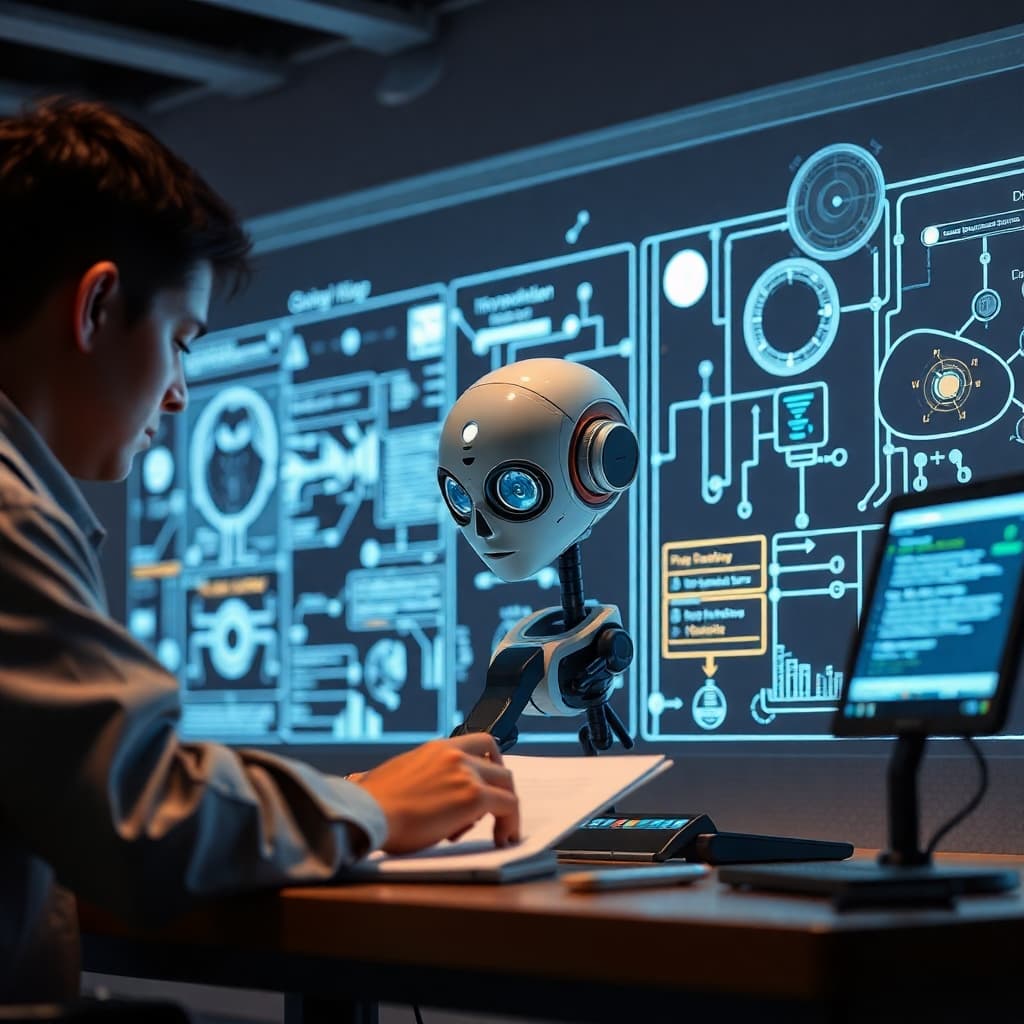
Discover how AI is transforming language education, making it more accessible, personalized, and effective for learners worldwide.

Discover how artificial intelligence is revolutionizing study methods, helping students learn more effectively and retain information longer.